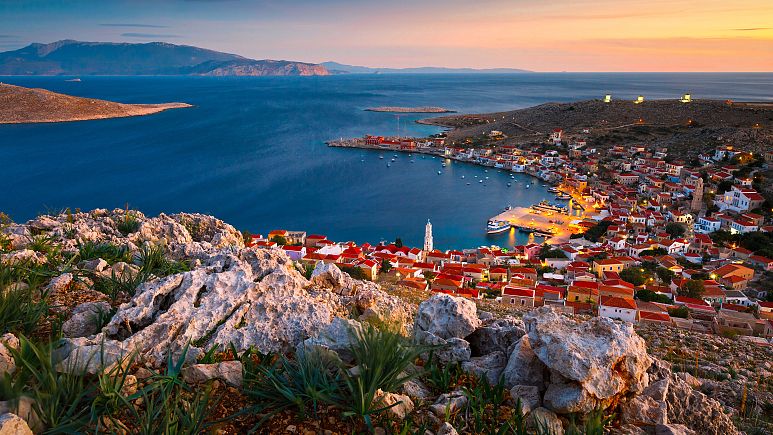
In a race to avert the climate crisis, the tourism industry is evolving. More travelers decide to keep their feet on the ground; the industry responded with flight-free services and itineraries. Concerned with how the climate impacts biodiversity and wilderness areas, many tour operators began actively supporting carbon reduction and rewilding programs. It turns out that where travelers finally lay their heads at the end of a busy day affects the climate, as well.
According to research conducted by the Sustainable Hospitality Alliance, “The hotel industry needs to reduce its carbon emissions by 66 percent per room by 2030 and 90 percent per room by 2050 to ensure that the growth forecast for the industry does not lead to a corresponding increase in carbon emissions.”
Responding to regulatory changes, consumer preferences and proactive climate commitments, hotel chains and independently owned accommodations are making changes — though at varying speeds and to differing degrees. This includes pursuing LEED certification, shifting to renewable energy, and reducing waste and water consumption, among other actions.
“When I designed our first villa, Villa Punto de Vista, that was back in 2007 — just after the release of Al Gore’s An Inconvenient Truth — so I was already in tune with the concept of a warming planet and designed the building with an eco-conscious mindset,” said David Konwiser, co-founder and architect of the Costa Rica property. “However, ten years later and after seeing the devastating storms and worsening drought ravage our planet over that next decade, I designed our second villa (Villa La Isla) with even more emphasis on carbon neutrality.”
From natural fiber ceilings produced by Indigenous Peoples living in Costa Rica’s mountains to the microfiber bedding made from recycled plastic bags, nearly every square inch of the property reflects Konwiser’s climate concerns. “The villas’ materials and finishes had to be of premium quality, ecologically sourced, and surpass the challenging esthetic and safety expectations of the world’s most discerning travelers,” he said.
Villa Punto de Vista certainly isn’t the only property built from the ground up with the climate top of mind. In fact, there’s been a wave of them lately: Svart — a luxury property in Norway expected to open in 2024 — is said to be the first off-grid, energy-positive resort. The recently opened Hotel Marcel in New Haven, Connecticut, is completely powered by solar electricity.
Similarly, Populus — a 265-room hotel currently under construction in Denver, Colorado — is being billed as the first carbon-positive hotel in the US. It features window “lids” that provide shade while improving energy performance and a roof terrace planted with regional vegetation intended to attract local wildlife and insects.
Critics of “sustainable” buildings rightly point out that an eco-friendly, resource-efficient building is one thing; but construction itself has a massive carbon footprint. As noted in a 2022 Bloomberg article, the Marcel may be designated LEED Platinum; but on its way to being the US’s first net-zero-emissions hotel, its calculations failed to include embodied carbon — which includes all the greenhouse gases emitted during renovation, construction, demolition and disposal of a building.
According to Transforming Existing Hotels to Net-Zero Carbon, a guide developed by four companies including IHG Hotels & Resorts, embodied carbon makes up between 30 and 70 percent of a typical building’s total lifecycle emissions. Further, approximately 80 percent of the buildings that will be in use in 2050 are already in existence today.
“Adapting and retrofitting existing buildings to lower GHG emissions is critical and needs to be embraced as part of the hotel sector’s ‘Routemap to Zero Carbon,’ particularly as expectations of hotel investors, owners, staff, and guests shift towards greener, more sustainable models of investment, business operation, and living,” noted Gillian Breen, director of Gleeds at the time of Transforming Existing Hotels’ publication.
The natural solution for most properties, then, is to renovate existing buildings with an eye on sustainability. For example, Hotel Belmar — located in Costa Rica’s Monteverde cloud forest — was built in 1985 with environmental stewardship, cultural appreciation and economic benefits for the local community in mind. Upgrades nearly 30 years later further reduced its environmental footprint.
“The 2012 renovation of Hotel Belmar kept our traditional wooden architecture; but we adapted most rooms, some bathrooms and hallways to have floor-to-ceiling windows, skylights and big sliding glass doors,” said Pedro Belmar, CEO and general manager of the hotel. This increased lighting efficiency and ventilation, and decreased energy consumption. Property owners also invested in solar panels, upgraded water-treatment systems and installed rain-collector systems.
Regardless of whether properties are renovated or built more sustainably (while accounting for embodied carbon), time is of the essence when it comes to making climate-conscious accommodations an industry standard.
“It is widely acknowledged that this decade needs to be one of climate action,” wrote Simon Gill, hotels and leisure business leader for UKIMEA at Arup, in his forward to Transforming Existing Hotels. “Without taking bold steps now, we will not be able to achieve the net-zero carbon target set for 2050 and avert climate catastrophe.”
Source Sustainable Life Media





